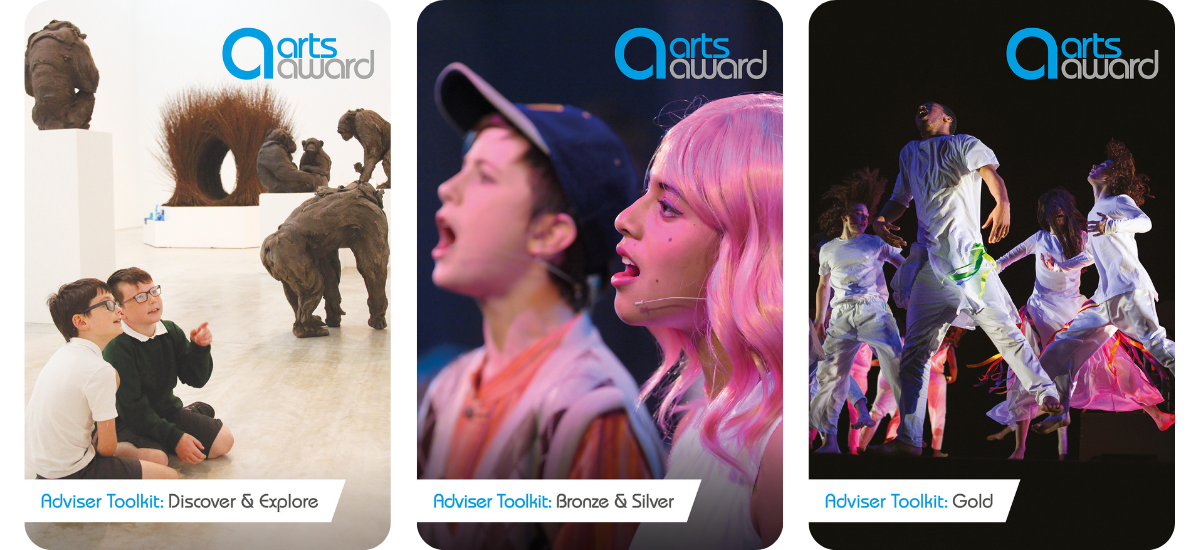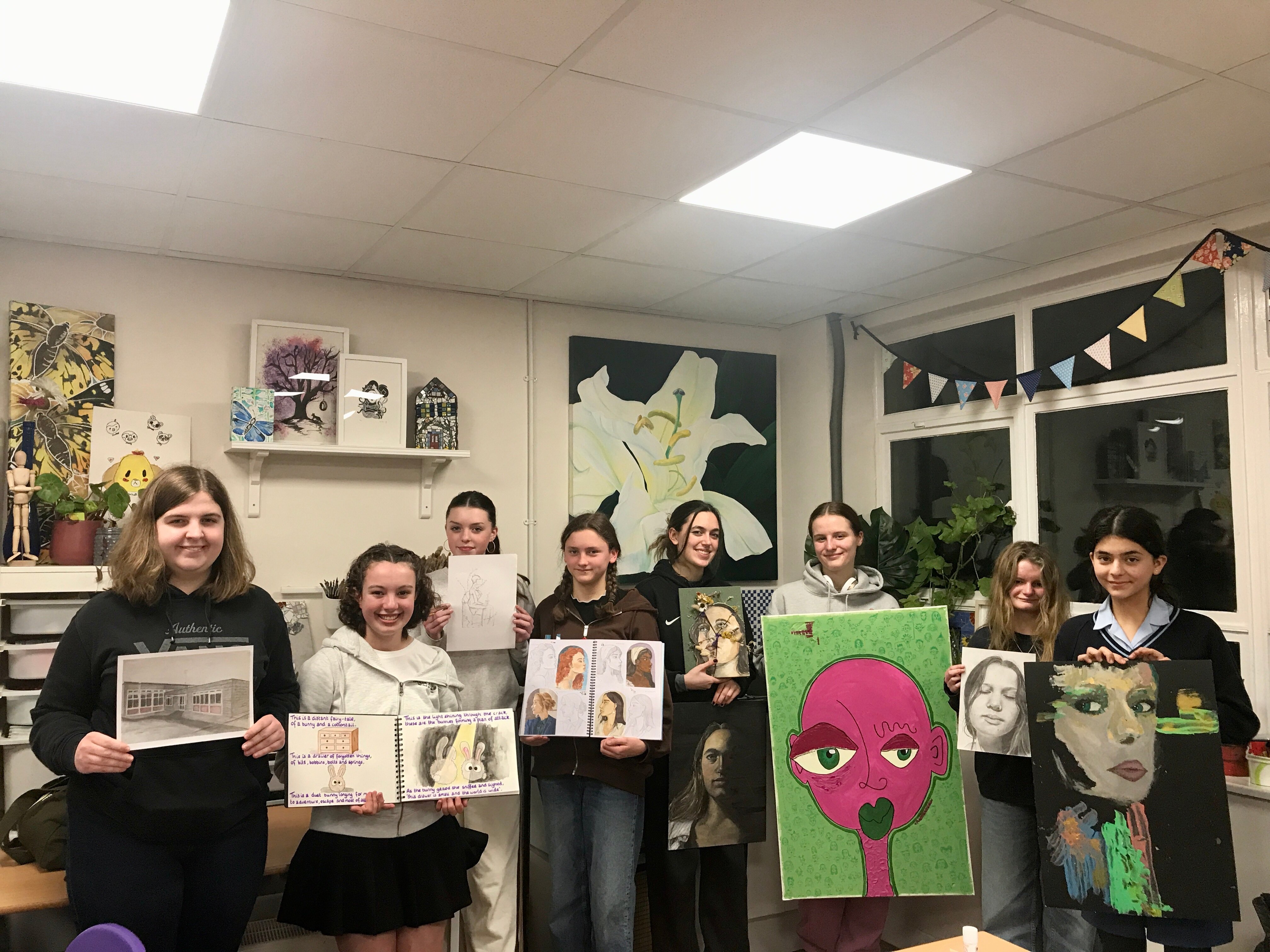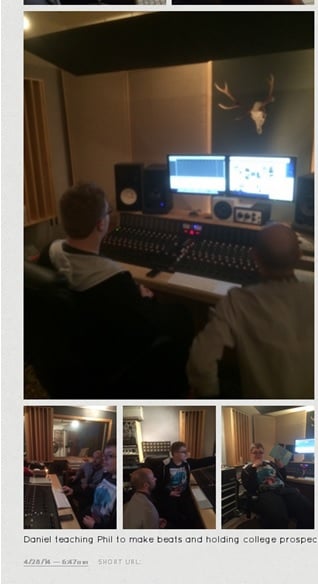.jpg)
Accrediting your end of term production
BY: Nicola King
07 Nov 2022
After returning from October half term, thoughts may be turning to your end-of-term production. Did you know there are numerous ways to incorporate Trinity qualifications into your show so that your students can gain a qualification in recognition of their hard work? In this blog we will explore how you can embed Arts Award, and other Trinity qualifications, into your production.
Many schools, or private performing arts academies, already put on a Christmas show of some description, whether this is a play, musical or variety show, or carol concert. These productions are a great way to showcase the hard work and talents of students and being involved in such a production can be reward enough, but the nature of live performance work means that hard work is often lost or forgotten after the production run is over. Embedding a qualification into the production offers the chance for this work to be recognised and accredited, which is a great outcome for both teacher and student.
In each level of Arts Award there are opportunities to link different parts or criteria to your performance:
- Taking part in a nativity play can be used to evidence Part A for Discover. Make sure you take pictures of your students taking part to include in their logbooks.
- For Part B, at both Discover and Explore, young people need to find out about an artist. Think about whether you can link this to the production you are doing; for example, if you were performing a production of ‘A Christmas Carol’, you could research Charles Dickens. For Explore Part B, you also need to find out about an arts organisation and, again, this could be linked to your end of term activities. For instance, if you go on a school trip to watch a pantomime, your class could find out about the theatre company that staged the production.
- For Explore Part C, young people need to create a piece of artwork and record the process of making it, and this can be linked to your end of term production too. You can record the rehearsal - or creation - process, and their final artwork - the performance - through photographs, video recordings, the programme, or a rehearsal log or diary.
- As above, Bronze Part A could be linked to rehearsals and Part C to an artist connected to your production, such as the playwright or songwriter. You could also link Part D (Skill Share) to your production: the young person could lead a warm-up during rehearsals, passing on a drama skill such as improvisation, character building, or a vocal warm-up.
- There are also opportunities to embed Silver in your end-of-term play. For example, perhaps you are working with a young person who wants to develop their acting skills for their Unit 1 Parts A and B ‘Arts Challenge’; taking part in rehearsals and the performance could form part of their action plan for how they will develop new skills within their art form.
- The Silver Unit 2 ‘Arts Leadership Project’ could be linked to your production, where the young people’s art forms are appropriate. They could take responsibility for an area of the production, such as costume, lighting, or set design. The young people would need to document their process, rehearsals and production meetings they attended, how they worked with others, as well as reflections on the leaderships skills they developed.
- For Gold Unit 2, young people could take responsibility for organising the whole end-of-term performance. For example, they could organise a Christmas Carol concert from programming and facilitating rehearsals, to managing the public showing.
Another way of accrediting your Christmas play would be to enter it for an In Production exam. Trinity College London offer a unique set of qualifications for drama that allows whole productions to be assessed: Musical Theatre In Production, Performance Arts In Production and Plays In Production. These graded qualifications run from Initial to Grade 8 and the exams are marked as a whole group with each candidate receiving a certificate. Being assessed as part of a group can also make the process a lot less daunting and a lot more inclusive.
In Production exams have two strands:
PATHWAY 1 - PERFORMANCE, DESIGN AND TECHNICAL
PATHWAY 2 - PERFORMANCE ONLY
In Production exams offer real, tangible outcomes for students, teachers, and schools, outside of the actual performance, namely validation from an internationally renowned exam board for the work undertaken, professional feedback from Trinity examiners, and certification to display or add to a personal portfolio.
These exams are available both face-to-face and digitally. In a face-to-face exam, the examiner attends the performance as a member of the audience and assesses the overall production being performed and the overall technical ability demonstrated. Or, for the digital option, schools would upload a video of the performance along with the programme providing details of what is being performed, including names of those performing backstage roles, where appropriate. Where schools film their productions anyway, there is no added work for this.
To help you prepare for your end-of-term production why not download our free production countdown checklist, which covers every aspect of putting on a successful production, presented in a practical timeline so you can keep on top of the workload and delegate with ease.
However you decide to recognise your end of term production, we wish you the best of luck for a successful show. Break a leg!
If you have any questions about our In Production exams you can get in touch with our support team on DanceDramaSpeech@trinitycollege.com. For any questions about your Arts Award delivery contact us on artsaward.enquiries@trinitycollege.com.
Related posts
BY: Nicola King
BY: Guest Writer




Comments & Replies